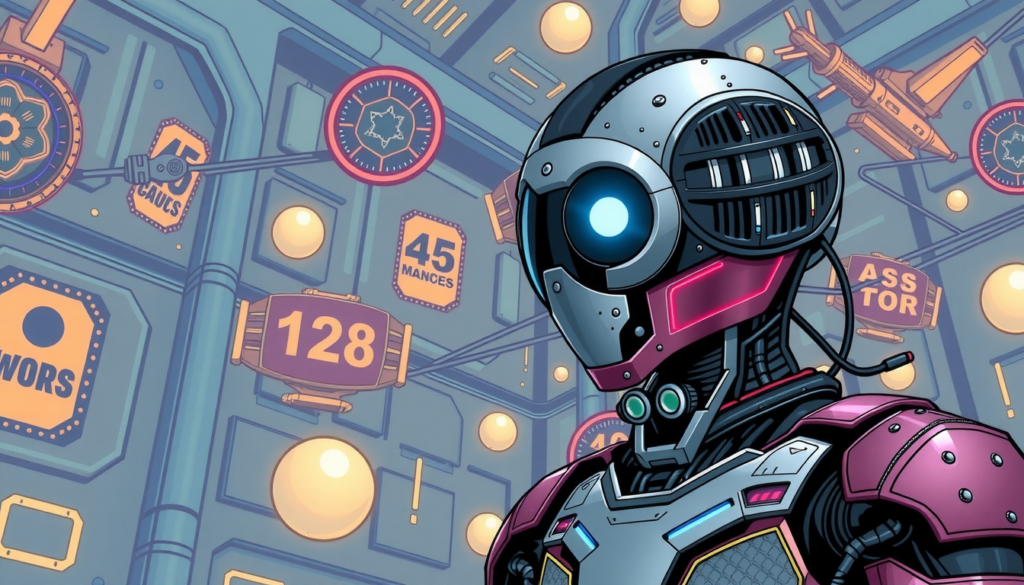Artificial Intelligence: The Next Revolution
Artificial Intelligence (AI) has rapidly evolved from a science fiction concept to a cornerstone of modern technology. Over the last few years, AI has begun to fundamentally change the way we live, work, and interact with the world around us. From chatbots to self-driving cars, AI is reshaping industries and revolutionizing daily life.
In this article, we’ll explore the history of AI, its current applications, and the potential challenges and benefits it brings to society.
History of Artificial Intelligence
The origins of AI can be traced back to the 1950s, when pioneers like Alan Turing and John McCarthy began exploring the concept of machine intelligence. Turing’s famous 1950 paper, “Computing Machinery and Intelligence,” posed the question, “Can machines think?” This question sparked decades of research and development in the field.
In the early years, AI research focused on symbolic reasoning and logic, leading to the development of expert systems in the 1970s. These systems could perform specific tasks by using a set of predefined rules, but they were limited in their flexibility.
The true breakthrough in AI came with the rise of machine learning in the 21st century. With the advent of powerful computing hardware and the availability of vast amounts of data, machine learning algorithms were able to learn from data without explicit programming, leading to significant advancements in the field.
Current Applications of AI
Today, AI is ubiquitous, with applications in nearly every sector of society. Here are some of the most prominent areas where AI is making an impact:
- Healthcare: AI is revolutionizing healthcare by improving diagnostic accuracy, personalizing treatment plans, and even assisting in drug discovery. Machine learning algorithms can analyze medical images, detect early signs of disease, and predict patient outcomes with incredible precision.
- Transportation: Self-driving cars and autonomous vehicles are being developed and tested by companies like Tesla and Waymo. AI is also used to optimize traffic management systems and reduce congestion in urban areas.
- Finance: AI is used for fraud detection, risk management, algorithmic trading, and customer service in financial institutions. Banks use AI to analyze patterns in transaction data and prevent fraudulent activities.
- Customer Service: Chatbots and virtual assistants powered by AI are becoming increasingly common in customer service. These systems can handle a wide range of inquiries, providing fast and efficient support to customers.
- Entertainment: AI is also transforming entertainment, from personalized recommendations on platforms like Netflix to AI-generated music and art. It’s even being used in video games to create more realistic and dynamic virtual worlds.
The Future of AI
The future of AI holds immense potential, but also raises several ethical and social challenges. As AI systems become more autonomous, there are concerns about job displacement, privacy, and the potential for bias in algorithms. There is also the possibility of AI becoming more intelligent than humans, raising questions about control and safety.
To address these issues, researchers and policymakers are focusing on creating frameworks for responsible AI development. Ensuring transparency, fairness, and accountability in AI systems will be crucial for fostering public trust and ensuring that AI benefits society as a whole.
Ethical Concerns and Challenges
As AI continues to advance, it raises several important ethical concerns:
- Bias and Fairness: AI systems are often trained on large datasets, and if these datasets are biased, the AI can learn and perpetuate those biases. For example, biased algorithms in hiring processes could lead to discrimination against certain demographic groups.
- Job Displacement: AI has the potential to automate many jobs, leading to significant disruption in the workforce. While some jobs may be created in the tech sector, others, especially in manufacturing and retail, may be lost.
- Privacy: AI systems often rely on large amounts of personal data to function effectively. This raises concerns about data privacy and how personal information is collected, stored, and used.
- Autonomy and Control: As AI becomes more capable, it may begin to make decisions that have a profound impact on human lives. The question arises: how much control should humans retain over autonomous systems?
Conclusion
Artificial Intelligence is no longer a futuristic concept; it is a reality that is shaping our world in profound ways. From healthcare to transportation, finance to entertainment, AI is transforming every aspect of our lives. While there are challenges to address, particularly in terms of ethics and societal impact, the potential benefits of AI are vast. As we move forward, it will be crucial to develop AI technologies that are ethical, transparent, and accountable, ensuring that they serve humanity in positive and transformative ways.
